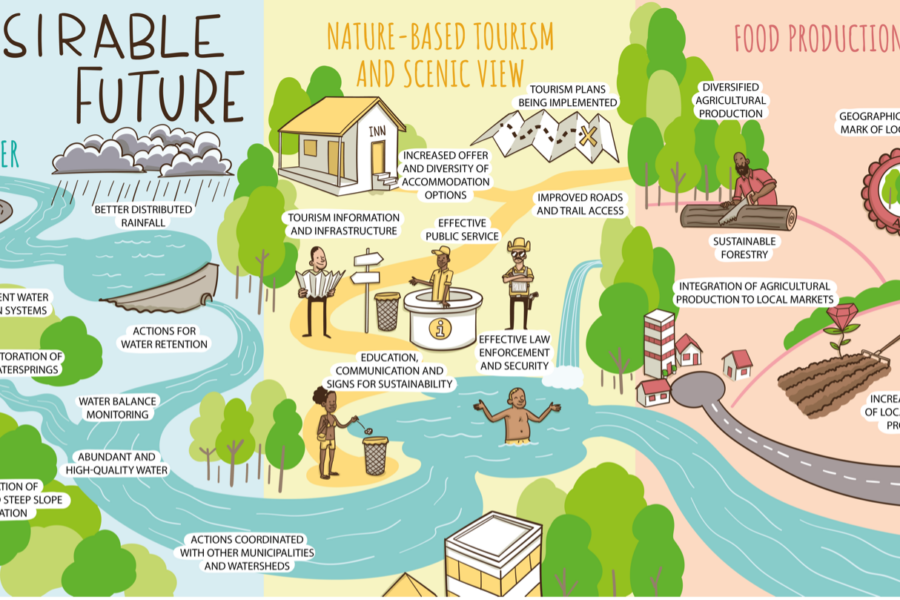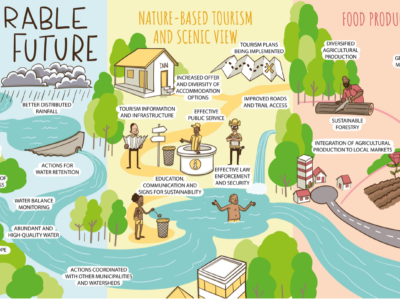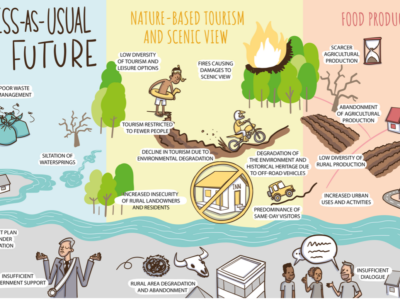In this work, we aimed to assess past and future trends of nature’s contributions to people (NCP) within Campinas Environmental Protected Area (EPA), southeast Brazil. Campinas EPA is a peri-urban, sustainable-use protected area located in the municipality of Campinas, São Paulo state, southeast Brazil. We collaborated with the management council of the protected area as key partners of the research project and participants in scenarios workshops. The management council includes different sectors of the municipal government, residents’ associations, farmers and landowners’ associations, environmental nongovernmental organizations, and universities. To identify NCP occuring at the area and describe how they have changed over time, we conducted interviews with management councilors and built a qualitative, causal-loop diagram. To assess potential future trajectories (2020–2040) of NCP within Campinas EPA, we organized and facilitated two participatory scenario planning workshops. During the virtual workshops, three main outcomes were anticipated: co-creation of a business-as-usual scenario, considering the patterns of change of the last 20 years; co-creation of a vision of a desirable future scenario for NCP; and a list of actions to achieve the vision and avoid the business-as-usual scenario. A graphical facilitator designed an artistic panel that represented each scenario. Overall, the desirable future highlights how management councilors value a multifunctional landscape that can support the provision of multiple NCP.
The biggest impact of the project was the participatory creation of scenarios that were depicted as graphical panels coupled with the identification of actions that could lead to achieving a desirable future. The graphical panels proved to be an effective boundary object to foster engagement and conversations with management councilors.
The scenarios were made in: 2020
The scenarios look out to: 2040


